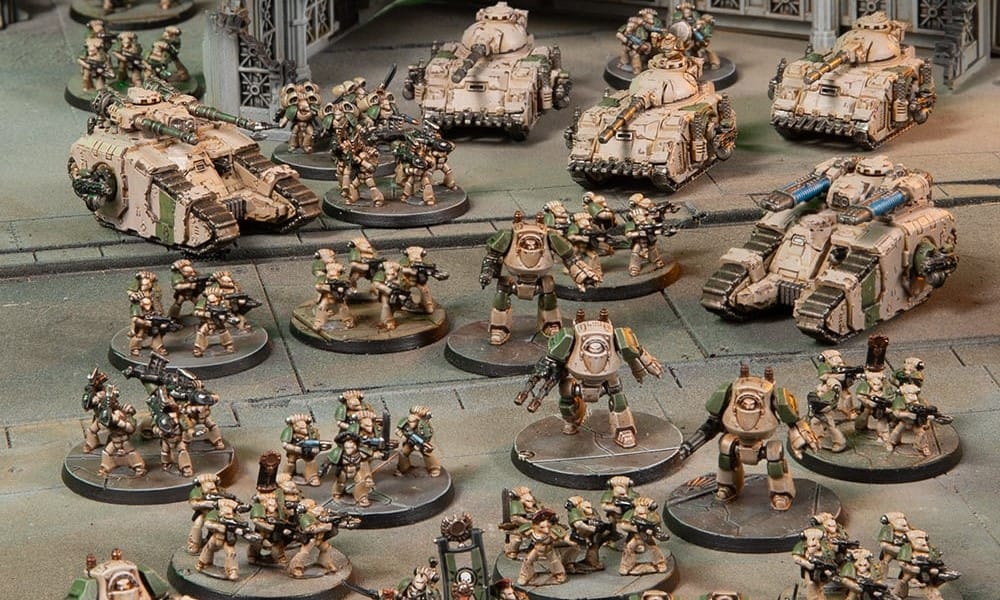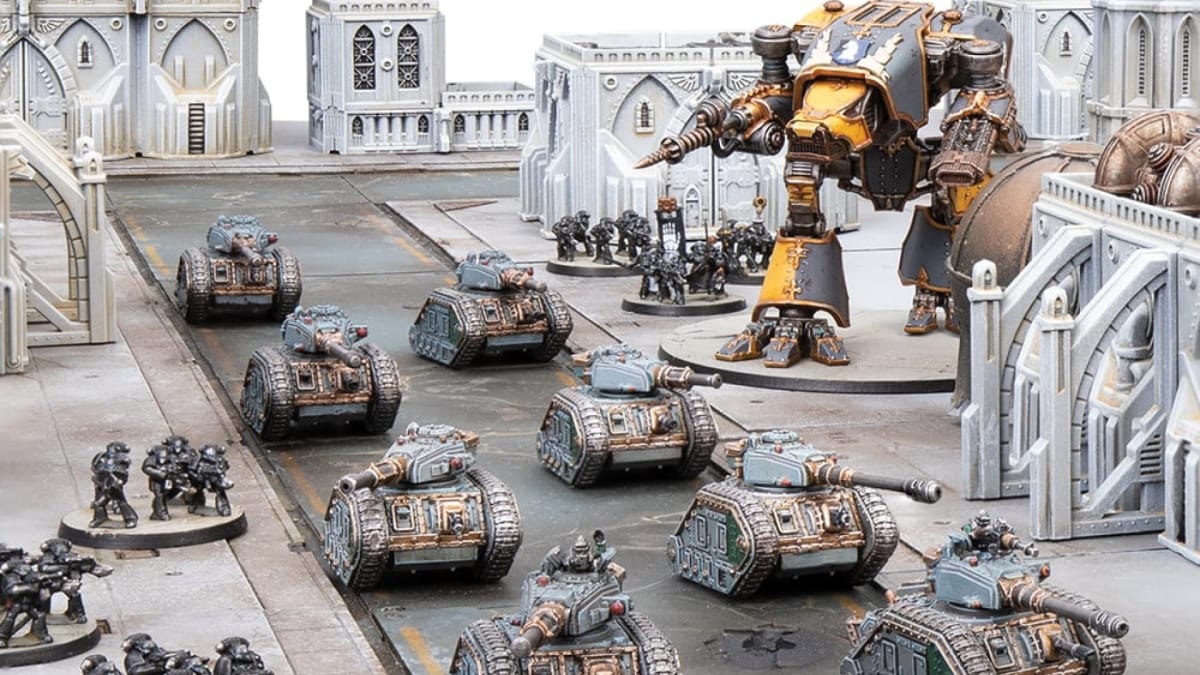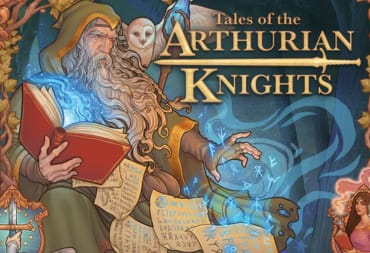Games Workshop has revealed new details on Warhammer Legions Imperialis. This Horus Heresy spin-off has been touted as a war game on a truly epic scale by Games Workshop. And with the details given, they have made good on that boast.
The Warhammer Legions Imperialis preview
In a Warhammer-Community post, Games Workshop does into detail about Warhammer Legions Imperialis. First, the recommended size for a game is on a 5' x 4' board with armies worth 3,000 points on each side.
This is a major increase in army and board size compared to Warhammer 40k 10th Edition. The only mode on par with a standard game of Legions Imperialis is Onslaught mode.
This isn't the only game set during the Horus Heresy. In addition to this and the main game, GW has produced Horus Heresy: Aeronautica Imperialis, a dogfighting war game.
As for how you pick your units, that is straightforward. Your choices are Loyalists or Traitors. Then you pick about 70% of your faction's units from a primary army list. Your units are then broken up into two different components: Formations and Detachments.
Your detachments are the foundation of your army and are similar to individual units. Formations are larger strategic groups of those detachments. These are selected as part of a Formation Organization Chart.
You must have one Formation from your Primary Army List for every 1,500 points spent on units. This means a standard army in a game Warhammer Legions Imperialis will have two Formations minimum.

Once your Formations and Detachments are recruited, there is still the remaining 30% of your army. This 30% comes from Allied Contingents. These represent other forces that are allied with your group, such as the Knight Households and Titans.
As for turn structure, Warhammer Legions Imperialis is a bit different from the standard Games Workshop fare. There are five phases to a turn. Both players act within each of these phases.
Those five phases are in the following order: First are Orders, this is where you secretly assign one of four orders to each detachment. Second is Initiative, where you determine who goes first. Following that is movement, then combat, then the end phase.
Secret orders are given by using tokens. They are placed facedown on each detachment. These orders are then revealed once all of them are placed. The initiative is then determined by a roll-off. Those orders are First Fire, Advance, March, Charge, and Fall Back.
These orders are important since they affect your movement and actions going forward. Advance is the most flexible, allowing regular movement and shooting. March lets you move up to double your movement speed but not shoot. And First Fire doesn't let you move but guarantees you will shoot first in the combat phase.
As for combat itself, Warhammer Legions Imperialis handles things a bit differently. When detachments fight, each individual model is paired off against each other, then rolls and wounds are determined. If units are uneven, pairing up happens.
This system is a throwback to older large-scale war games. In fact, Games Workshop cites one of its own titles, 1988's Adepticus Titanicus, as an inspiration.
There is currently no release date for Warhammer Legions Imperialis.







